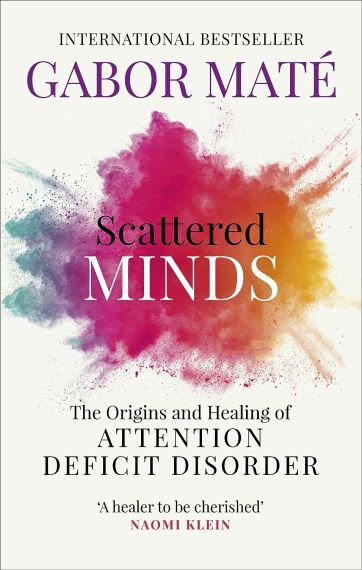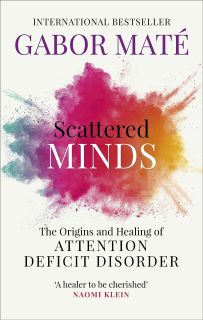Scattered Minds explodes the myth of attention deficit disorder as genetically based – and offers real hope and advice for children and adults who live with the condition.
Gabor Maté is a revered physician who specializes in neurology, psychiatry and psychology – and himself has ADD. With wisdom gained through years of medical practice and research, Scattered Minds is a must-read for parents – and for anyone interested how experiences in infancy shape the biology and psychology of the human brain.
Scattered Minds:
- Demonstrates that ADD is not an inherited illness, but a reversible impairment and developmental delay
- Explains that in ADD, circuits in the brain whose job is emotional self-regulation and attention control fail to develop in infancy – and why
- Shows how ‘distractibility’ is the psychological product of life experience
- Allows parents to understand what makes their ADD children tick, and adults with ADD to gain insights into their emotions and behaviours
- Expresses optimism about neurological development even in adulthood
- Presents a programme of how to promote this development in both children and adults
Gabor Maté is a revered physician who specializes in neurology, psychiatry and psychology – and himself has ADD. With wisdom gained through years of medical practice and research, Scattered Minds is a must-read for parents – and for anyone interested how experiences in infancy shape the biology and psychology of the human brain.
Scattered Minds:
- Demonstrates that ADD is not an inherited illness, but a reversible impairment and developmental delay
- Explains that in ADD, circuits in the brain whose job is emotional self-regulation and attention control fail to develop in infancy – and why
- Shows how ‘distractibility’ is the psychological product of life experience
- Allows parents to understand what makes their ADD children tick, and adults with ADD to gain insights into their emotions and behaviours
- Expresses optimism about neurological development even in adulthood
- Presents a programme of how to promote this development in both children and adults
Kullanım Şartları
These are our terms & conditions.

















